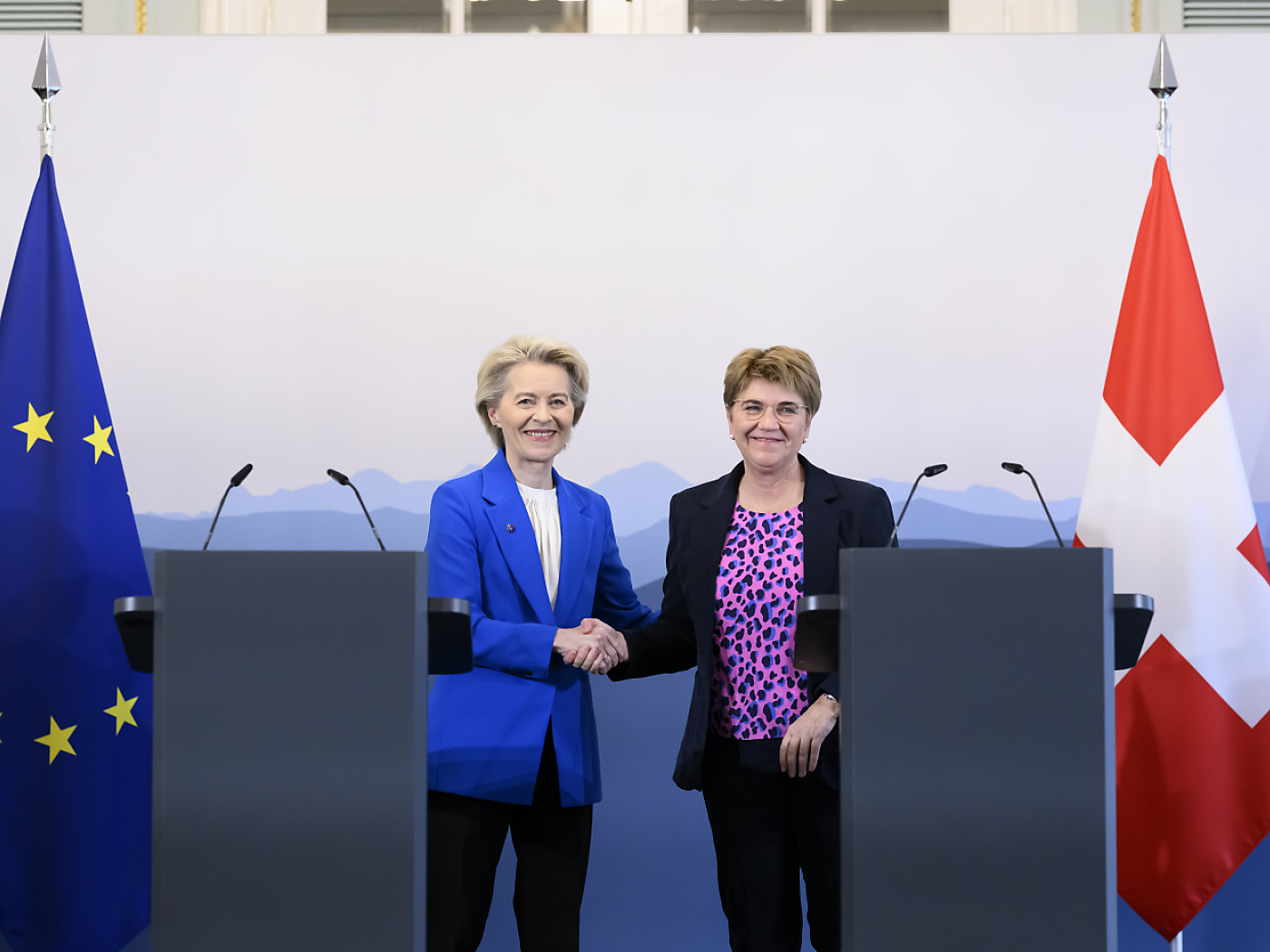Swiss foreign minister in China to boost ties

Foreign Minister Micheline Calmy-Rey is in China to discuss bilateral ties and to open a new Swiss consulate in one of the country's most dynamic areas.
The two countries have a long history of collaboration economically and politically – but they still disagree over human rights issues.
Calmy-Rey, who started her five-day trip on Thursday, will meet her Chinese counterpart Li Zhaoxing in the capital, Beijing, as well as Vice President Zeng Qinghong. The move follows a visit by Li to Switzerland in February.
“Bilateral relations and current regional politics issues will be discussed,” Lars Knuchel, spokesman for the Swiss foreign ministry, told swissinfo.
Calmy-Rey will also open a new consulate in the fast growing Guangzhou province as well as meet local politicians in the area.
Despite the huge differences between the two countries in terms of size, economy and environment, Switzerland has always maintained cordial relations with Communist-run China.
Switzerland was one of the first western European countries to establish official relations with the country, recognising the People’s Republic in 1950. It was also the first to carry out a joint business venture with a Chinese company.
The country was also indirectly involved in China becoming a member of the World Trade Organization as Swiss ambassador Pierre-Louis Girard led the negotiations.
Bern and Beijing have now agreed to follow the bilateral route. This was confirmed by Swiss President Moritz Leuenberger who earlier this year said that he wanted to “further strengthen mutual ties”.
Economy
The Swiss are most anxious not to miss out on the People’s Republic’s booming economy, whereas the Chinese are becoming increasingly interested in what the small, neutral alpine country has to offer.
Swiss exports to China, which has one of the world’s fastest growing economies, have increased annually by 20 per cent and have more than doubled since 2002.
Direct investment by Switzerland in the country jumped by 12 per cent between 2003 and 2004.
This progress has been acknowledged by Beijing – two years ago it gave Switzerland its approved tourist destination rating, opening Switzerland to millions of Chinese tourists.
Human rights
But there is still one area which is delicate – human rights. Since a dialogue was started in 1991, the two countries have reached some common ground in the domains of justice and prisons.
Tibet, however, remains a difficult issue. Chinese President Jiang Zemin on a state visit to Bern in 1999 gave former cabinet minister Ruth Dreifuss a dressing down following a pro-Tibetan rally outside parliament.
China also expressed its displeasure when the spiritual leader of Tibet, the Dalai Lama, visited Switzerland last August. China does not recognise Tibet’s claim for independence.
But signs that relations were thawing over human rights came earlier this year when Calmy-Rey affirmed during Li’s February visit that discussions on the topic had been “without taboo”.
swissinfo, Luigi Jorio
China (without Hong Kong) is Switzerland’s second strongest trading partner in Asia after Japan.
Swiss exports to China have risen from SFr415 million ($327 million) in 1990 to SFr3.1 billion (2004).
Chinese exports to Switzerland have risen from SFr418 million (1990) to SFr2.8 billion (2004).
Swiss direct investment in China (2004): $203 million.
There are around 300 Swiss companies operating in China.

In compliance with the JTI standards
More: SWI swissinfo.ch certified by the Journalism Trust Initiative










You can find an overview of ongoing debates with our journalists here . Please join us!
If you want to start a conversation about a topic raised in this article or want to report factual errors, email us at english@swissinfo.ch.